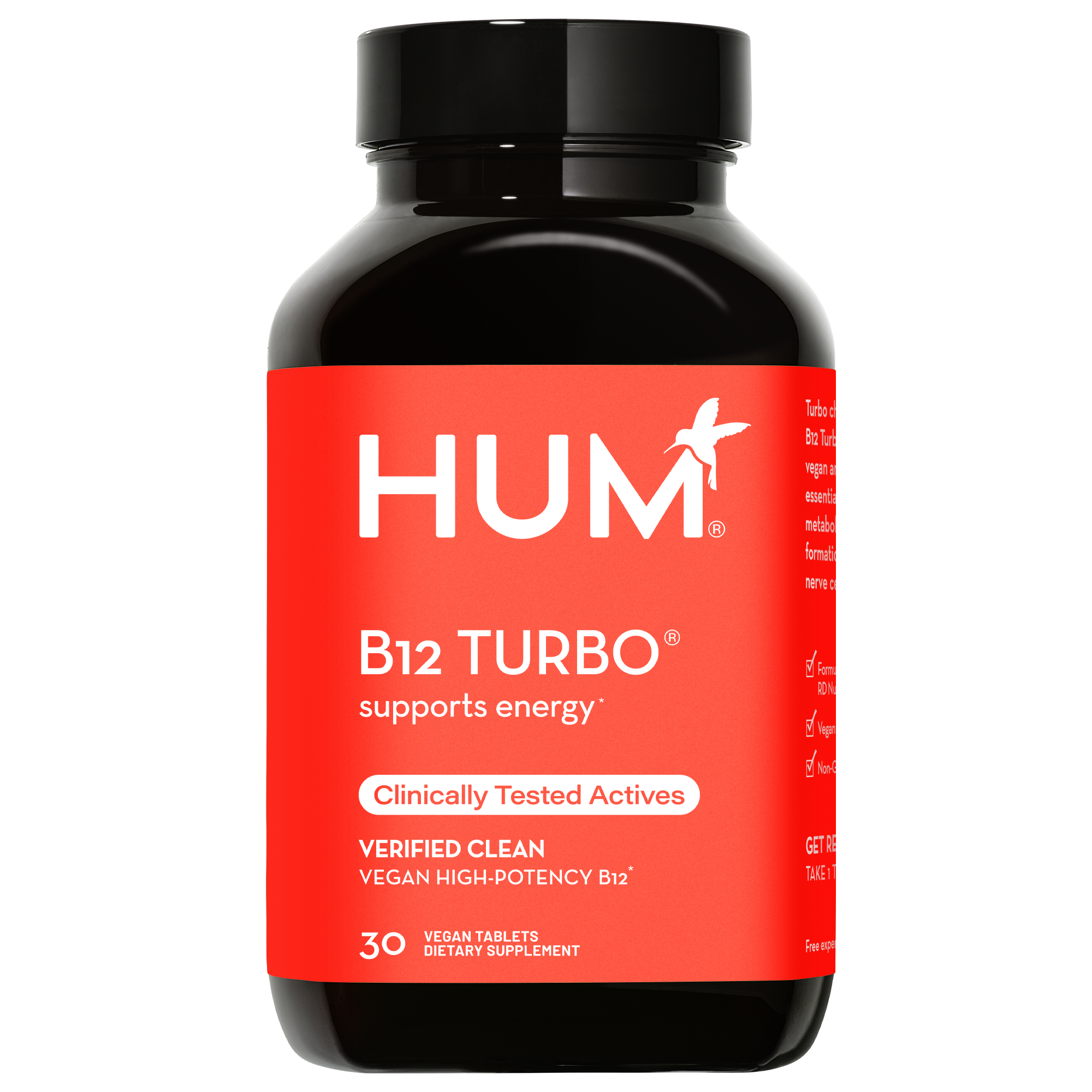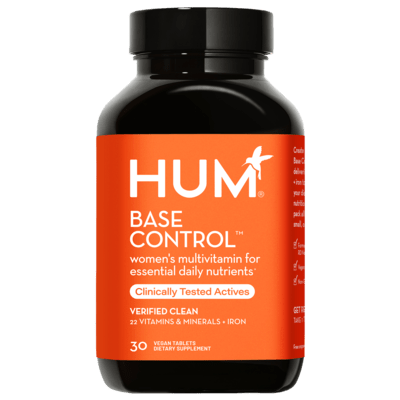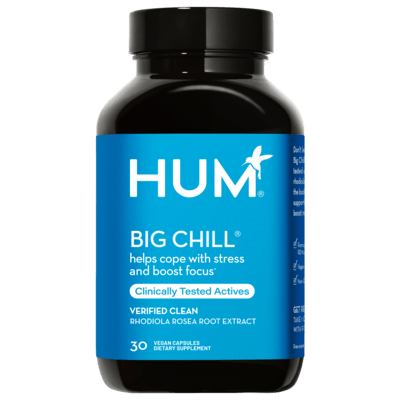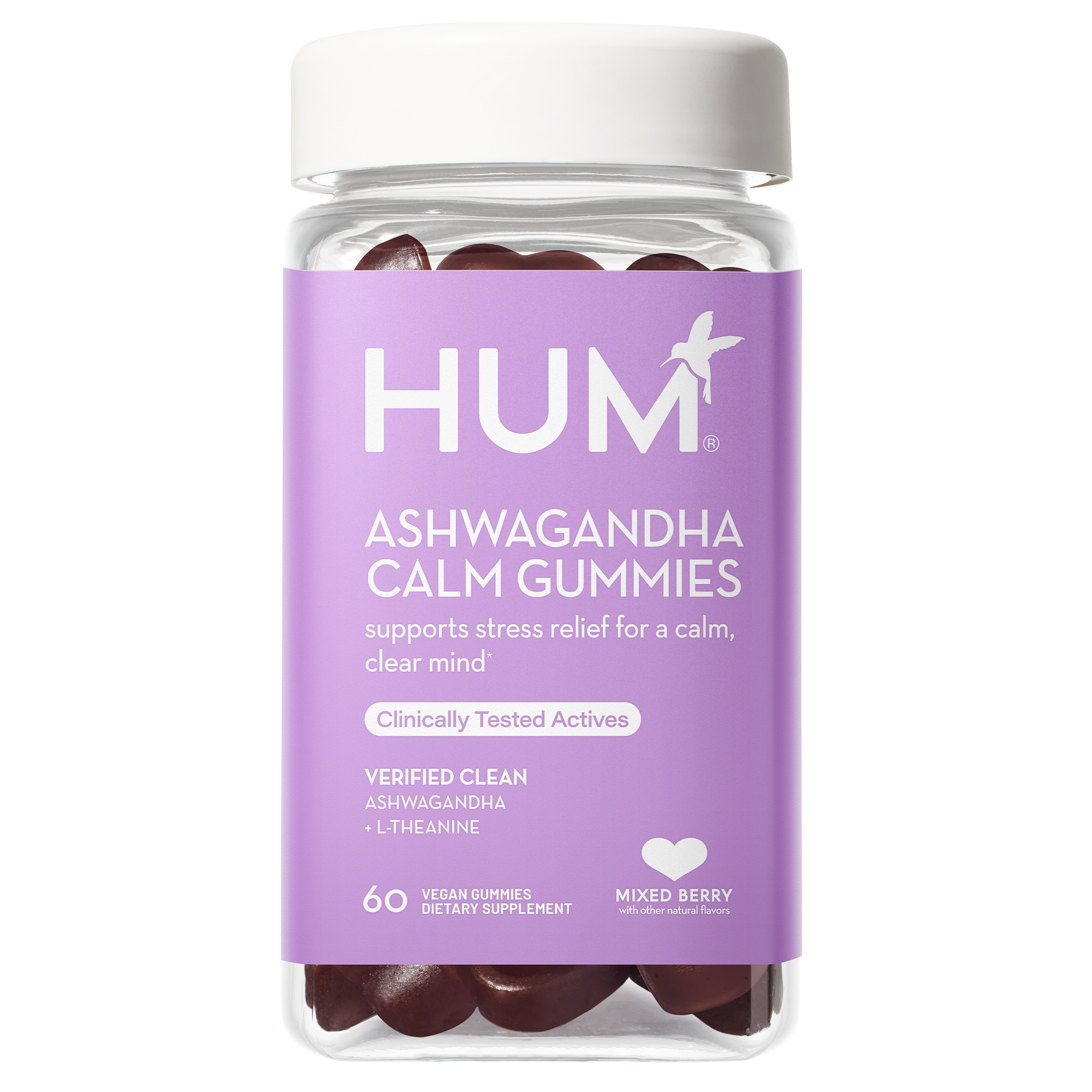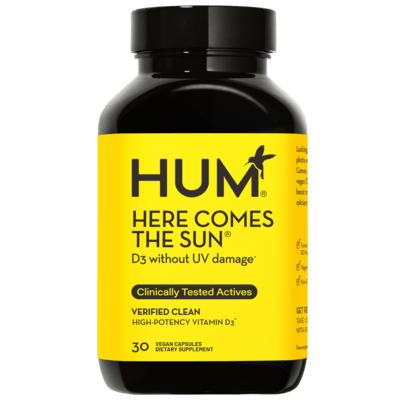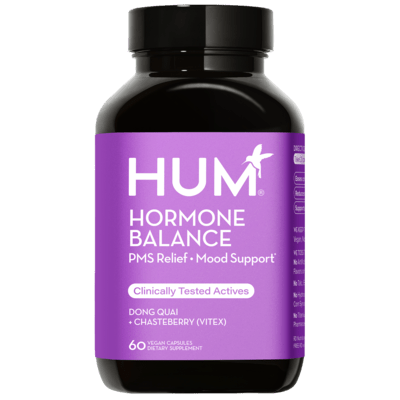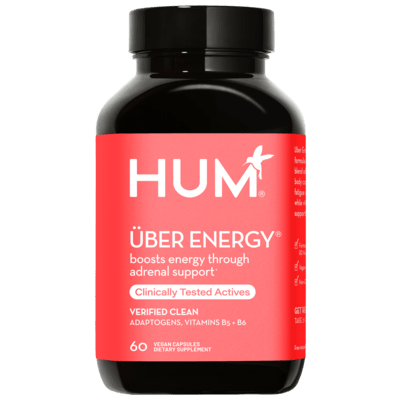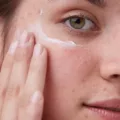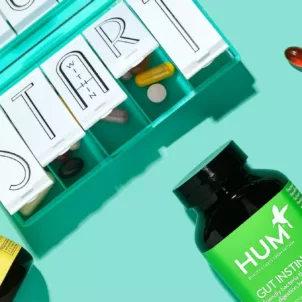Exactly Which Vitamins to Take For Hormonal Imbalance

Your hormones play a major role in your overall health. And while it’s natural for them to change throughout different life stages (think: menstruation, pregnancy, menopause), if they’re off balance, it can cause a range of hormonal imbalance symptoms and even long-term health issues. If you’re experiencing hormone-related health concerns, we rounded up the best vitamins for hormonal imbalances to help.
Taking supplements can help support your overall health and encourage a balanced hormonal system. Below, we break down different symptoms of hormone imbalance and the key hormones women should be aware of. Plus, the best vitamins for hormonal imbalance (including vitamin D and vitamin B12), herbal supplements, and tips for optimal hormonal health.
Hormonal Imbalance Symptoms
There are many signs and symptoms of hormonal imbalance, such as:
- PMS
- Osteoporosis
- Weight gain
- Altered sex drive
- Allergies
- Urinary tract infections
- Skin conditions (increased breakouts, feeling too dry, or feeling too oily)
- Fatigue
- Anxiety
- Water retention
- Hair loss
- Facial hair growth
- Depression
While these are a few common symptoms, there are other signs of hormonal imbalance to look for. If you’re experiencing any of these symptoms, it’s always best to consult a doctor.
Key Hormones to Keep In Check
Cortisol
Struggling with stress? The number one hormone to be aware of is cortisol. When your body is under stress, your adrenal glands release cortisol as part of the body’s natural stress response. Think of it like your body’s built-in alarm system: When your body senses a threat, it goes into a fight-or-flight response. As a result, cortisol suppresses any systems that aren’t necessary in an emergency situation, including your digestive system and your immune system. This response also impacts the brain regions that control mood, motivation, and fear.
Typically, once the perceived threat has passed, the body will naturally restore a balanced cortisol level. But if you’re constantly stressed out, you may be producing too much cortisol. This puts you at an increased risk of issues such as:
- Anxiety
- Depression
- Digestive problems
- Headaches
- Muscle tension and pain
- Heart disease, heart attack, high blood pressure, and strokes
- Sleep problems
- Weight gain
- Memory and concentration impairment
Managing stress levels is the best way to balance cortisol. Not sure where to start? Research has found that meditating, exercising, and spending time outdoors can all lower stress levels.
Insulin
Insulin regulates your body’s blood sugar levels. When you eat carbohydrates, your body breaks them down into glucose (or sugar). Then, insulin helps to move that sugar into your cells so they can use it for energy. But when your insulin levels are imbalanced, you might have trouble getting that energy.
When you have too many blood sugar surges and dips—usually from eating too much at once or not eating enough at other times—you can develop an insulin imbalance. If you don’t have enough insulin, your body isn’t able to use the glucose in your system for energy. The extra glucose that isn’t used by your cells is then stored as fat. Insulin imbalances are most common in people with Type I or Type II diabetes, but they can also be seen in people with prediabetes and less commonly in others. If you frequently experience crashes in your energy levels, or have any symptoms of diabetes, talk with your doctor.
Thyroid-Stimulating Hormone (TSH)
Thyroid-stimulating hormone (TSH) plays a role in how our bodies use energy. The hormone is produced in the pituitary gland and stimulates the thyroid to create two other thyroid hormones, T3 and T4. These regulate everything from our metabolism, digestion, body temperature, muscle strength, and mood.
If you have high levels of thyroid hormones, you may experience weight loss, fatigue, confusion, heat intolerance, increased heartbeat, high blood pressure, and other symptoms. Low levels of thyroid hormones, on the other hand, are associated with fatigue, weight gain, decreased heart rate, thinning hair, increased sensitivity to the cold, swelling of the face and neck, and other symptoms.
Estrogen
Estrogen is a sex hormone that’s vital for your mood, weight, bones, brain, and energy. In females, it helps develop and maintain the reproductive system. While both males and females have this hormone, females produce more of it.
Estrogen imbalances typically occur during menopause but can also occur outside of menopause. Some factors that influence your estrogen levels include issues with your thyroid, stress, and nutrition. An example of an imbalance is estrogen dominance, which occurs when there is an imbalance between your estrogen and progesterone levels.
After age 35, estrogen levels in females can start to decline. Ensuing issues can include night sweats, irregular periods, mood swings, and anxiety. Other symptoms of an estrogen imbalance include:
- Irregular or no menstruation
- Light or heavy bleeding during menstruation
- Hot flashes
- Night sweats
- Noncancerous lumps in the breast and uterus
- Mood changes and sleeping problems
- Weight gain
- Low sex drive
- Vaginal dryness and vaginal atrophy
- Fatigue
- Mood swings
- Feelings of depression and anxiety
- Dry skin
Testosterone
Testosterone is the other main sex hormone. While males have higher levels of testosterone, females have it too. Testosterone regulates fertility, sex drive, red blood cell production, weight mass distribution, and fat distribution.
Testosterone levels naturally decline with age in both males and females, but imbalances can also occur as a result of other health issues. Low levels of testosterone in women can lead to a variety of symptoms, including:
- Sluggishness
- Muscle weakness
- Fatigue
- Sleep disturbances
- Reduced sex drive
- Decreased sexual satisfaction
- Weight gain
- Fertility issues
- Irregular menstrual cycles
- Vaginal dryness
- Loss of bone density
High testosterone is another common hormonal imbalance, particularly in women with polycystic ovarian syndrome (PCOS). Symptoms can include:
- Missed periods, irregular periods, or very light periods
- Ovaries that are large or have many cysts
- Excess body hair, including the chest, stomach, and back (hirsutism)
- Weight gain, especially around the abdomen
- Acne or oily skin
- Baldness or thinning hair
- Infertility
- Small pieces of excess skin on the neck or armpits (skin tags)
- Dark or thick skin patches on the back of the neck, in the armpits, and under the breasts
The Best Vitamins for Hormonal Imbalance
The good news? You can help your body combat hormonal imbalances with the right nutrients. Incorporating vitamins into your daily diet can help support a more balanced body—helping you to stave off any symptoms you might be experiencing.
Of course, you’ll want to consult a doctor if you think you have a hormonal imbalance. But supporting your system with these vitamins and nutrients can make a difference in your daily life too. Below are the best vitamins to balance hormones.
Omega-3 Fish Oil
Omega-3 fish oil can positively affect hormones, according to Harvard’s Nutrition Source. Omega-3 fatty acids are necessary components of cell membranes and impact the function of cell receptors in the membranes. These fatty acids are key in producing hormones that deal with blood clotting, artery wall contraction, and inflammation.
Without a healthy supply of omega-3s, the body has difficulty producing the hormones it needs. Instead, it relies on lower-quality fats, which increases the risk of inflammation-related issues.
But consuming omega-3 fatty acids has other excellent benefits. In fact, a 2019 study found that greater consumption of omega-3s may diminish insulin resistance. And if you’re looking for the best vitamins to increase estrogen levels, an omega-3 fish oil supplement is the answer. A 2019 study found that consumption of omega-3 fatty acids had a positive effect on estrogen levels in postmenopausal women. Try to get 250-500 milligrams of this vitamin for your hormonal imbalances.
Looking to add this power nutrient to your routine? Try HUM Nutrition’s OMG! Omega The Great vitamin, which contains ultra-pure fish oil and vitamin E to support a balanced system and glowing skin.
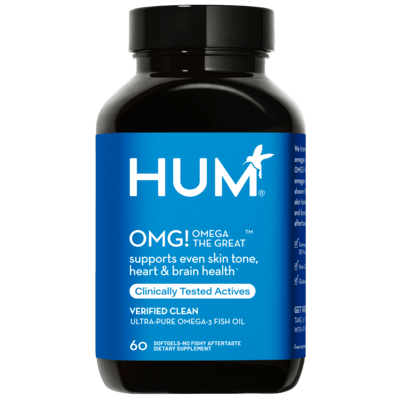
Vitamin D
One of the best hormone-balancing supplements? Vitamin D. Vitamin D plays a vital role in the production and activity of hormones including estrogen and progesterone. Studies show that this vitamin is crucial for skeletal health (read: bone mineral density). It also aids insulin regulation and blood sugar balance. Additionally, a study found a synergistic role for vitamin D and estrogen deficiency in postmenopausal women. In other words, women with lower vitamin D levels tended to have lower levels of estradiol (a form of estrogen), while women with higher vitamin D levels had high levels of estradiol.
While you can get vitamin D through absorption from the sun, that can be challenging during the winter (or if you’re working inside all day). Help boost your levels by taking a supplement, like HUM Nutrition’s Here Comes The Sun, which contains 2,000 IUs per serving. The recommended dosage of vitamin D for most individuals is 600-800 IU per day, however, more recent research suggests 1000 IUs per day just to maintain sufficient vitamin D status
Zinc
You need sufficient levels of zinc to balance your thyroid hormones. It’s also a necessary trace nutrient used to regulate the menstrual cycle and fertility. Additionally, zinc can help support against period pain, which is symptomatic of hormonal imbalance.
The standard dose is typically eight milligrams per day. However, since zinc can affect copper and iron levels, it’s best to work with a health professional to determine the right dosage. Pro tip: If you’re on hormonal birth control, you’ll definitely want to add this nutrient into your routine, as studies have shown birth control can deplete zinc levels. (Learn more about how birth control may impact nutrient levels.) HUM Nutrition’s Base Control contains zinc and 21 other micronutrients to help support a healthy, balanced body. Women should aim for eight milligrams daily while men should aim for 11.
Vitamin B12
Vitamin B12 is essential for proper nerve function, energy levels, memory, and learning and retaining information.
This nutrient is mainly found in animal protein, so plant-based eaters (vegans and vegetarians) are at a higher risk for vitamin B12 deficiency. However, research reports a prevalence of vitamin B12 deficiency in those with poorly functioning thyroids. Low levels of vitamin B can make you feel fatigued and depleted.
Methylcobalamin—a form of the vitamin available in food and supplements like HUM’s B12 Turbo—is easier to absorb and retain than its counterpart, cyanocobalamin. Studies recommend one to two milligrams per day, depending on your sex, age, diet, and other factors.
Herbal Supplements for Hormone Imbalance
Looking to go beyond vitamins for hormonal imbalance? There are also a number of herbs that can help keep everything in check.
Dong Quai
Also known as female ginseng, Dong Quai is commonly used in Chinese medicine to balance estrogen levels. More specifically, it has been traditionally used to aid with menstrual cramps and menopause symptoms (such as hot flashes). This powerful herb is found in HUM Nutrition’s Moody Bird supplement, formulated to support hormone balance and ease symptoms of PMS.
Rhodiola Rosea
Studies show the many benefits of rhodiola rosea, an adaptogenic herb included in HUM’s Uber Energy and Big Chill. Rhodiola aids thyroid function, improves immune function, and helps the body adapt to stress—all of which factor into hormonal balance.
Ashwagandha
Ashwagandha is one of the buzziest herbs on the internet—and with good reason. This powerhouse plant has the unique ability to encourage hormonal health at a cellular level. With continued use, it can help lower cortisol levels and help you manage your stress levels. Want to incorporate this herb into your wellness routine? HUM Nutrition’s Calm Sweet Calm supplement features Sensoril, the most potent form of Ashwagandha on the market.

Lifestyle Tips to Balance Your Hormones
While vitamins and herbal remedies can certainly help, your lifestyle also plays a pivotal role in combating hormonal imbalances. Adapt the following tips to foster optimal hormonal health:
Watch Your Stress Levels
Stress negatively impacts everything in your body. And while stress affects everyone, a study in The Journal of Brain & Behavior found that women are twice as likely to suffer from severe stress and anxiety as men. Many women lead hectic lifestyles, allowing their bodies little time to readjust from life’s demands. Ensuing stress can disrupt women’s natural hormone cycles. Find small ways to reset and relax, such as through meditation and other self-care rituals.
Catch Adequate ZZZ’s
Sleep allows the body to recover from any duress it may have suffered throughout the day. A lack of sleep means less recovery time, thus swinging hormones into overdrive. Try to get at least seven or eight hours of sleep each night to stave off hormonal imbalances.
Enrich Your Diet With Healthy, Well-Rounded Nutrition
Incorporate more fresh, organic fruits and vegetables plus an abundance of raw nuts and seeds into your diet. Refined carbohydrates, fried foods, soft drinks, processed vegetable oil, and trans fats may all alter hormone balance.
Sweat It Out
Get moving for 45 to 60 minutes at least three times a week. Form a routine that you enjoy and can stick to on a consistent basis.
Get Some Sunshine
Giving your body a healthy helping of full-spectrum sunlight can help stabilize hormones. Go outside and take a walk around the block a couple of times a week. It’ll help get you the movement you need plus the feel-good sunshine your body craves.
